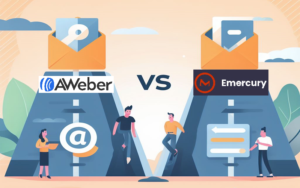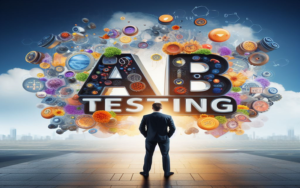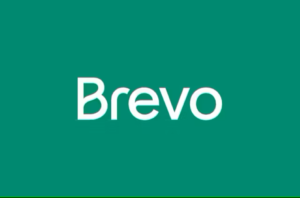In the fast-paced world of digital marketing, creating compelling email marketing campaigns is both an art and a science. To succeed, you need a solid strategy and precise execution. Luckily, success isn’t a shot in the dark; you have the tools to control your email marketing destiny.
Welcome to our Email Marketing Guide for 2023. Here, we’ll guide you through the crucial steps and strategies required for success in email marketing, ensuring your grasp of the subject while providing valuable insights. Let’s get started.
Table of Contents
Set Measurable Goals
The key to an effective email marketing campaign is to have clear, measurable goals in mind. Define your objectives and document them. For instance, you might aim to increase your open rate by 20% within six months, grow your email list by 10% every quarter, or enhance conversion rates through A/B testing. Remember to keep your goals SMART – Specific, Measurable, Attainable, Relevant, and Time-based. These documented goals will not only guide your program but also help you track your progress.
Align with Stakeholders on Goals and Responsibilities
Effective communication with everyone involved in your email marketing campaign is vital. Determine roles and responsibilities to avoid future surprises. Ask crucial questions like: Who’s responsible for content gathering? Who’s the copywriter? Will you collaborate with a designer or source creative assets? Who reviews test emails? Address these questions upfront, saving you time and potential roadblocks later in the campaign creation process.
Choose an Email Template or Build One from Scratch
When it comes to design, you can either build each campaign from scratch or use pre-made, customizable email templates. Templates are a time-saver, allowing you to get campaigns off the ground quickly. Consider aspects like the email header, footer, and whitespace, as they play a pivotal role in providing a consistent brand experience and maintaining your recipient’s focus.
Write Enticing Email Copy
Crafting compelling email copy is where the magic happens. Devote dedicated time, energy, and focus to this step. Work on individual components like the sender, subject line, and preview text. Engaging subject lines and sender names make the difference in getting your emails opened.
Images
Images can enhance your email’s appeal, but they should be chosen thoughtfully. Look for images that resonate with your email’s content and tone. Simplicity is key; overly complex designs can distract your recipients. Use free stock photos from platforms like Pexels or Unsplash, or invest in paid services like Canva, iStock or ShutterStock.

Comply with Email Regulations
Staying out of the spam folder is critical. Ensure you provide an easy and visible option for recipients to unsubscribe, as required by regulations like CAN-SPAM. Non-compliance can harm your sender reputation.
Remove Unengaged Subscribers
Size isn’t everything. Regularly prune your email list by removing unengaged subscribers. This practice enhances your sender reputation, reduces the risk of landing in spam folders, and boosts engagement rates.
Review, Test, and Send Your Email Marketing Campaign
Before sending, conduct thorough reviews to minimize errors. Check for spelling, grammar, broken links, and ensure that the email appears as intended. Consider A/B testing to find the best time for sending your emails, based on recipient engagement patterns.
Measure Your Results
Once your emails are sent, the work doesn’t end; it evolves. Continuously monitor essential metrics like unique opens, click-through rates, and conversion rates. A comprehensive understanding of your email campaign’s performance will be vital when seeking additional resources or headcount.
AI Email Marketing
Artificial Intelligence (AI) is transforming email marketing. AI personalizes content and automates tasks like segmentation and optimization. It can significantly impact open rates and engagement.
Example Email Marketing Platforms
Here’s a quick overview of some popular email marketing platforms:
ActiveCampaign: Renowned for powerful automation and personalization. Please see review on this website at the following link: ActiveCampaign Review
AWeber: User-friendly with essential email marketing tools.
Benchmark Email: User-friendly with a drag-and-drop editor.
Brevo (formerly Sendinblue): An all-in-one platform, cost-effective.
Constant Contact: Ideal for small businesses, includes event management and e-commerce features.
ConvertKit: Tailored for content creators and bloggers.
Freshworks: Offers multi-channel marketing and customer support.
HubSpot Email Marketing Software: Part of a larger suite with advanced automation.
iContact: Suitable for businesses of all sizes with templates and automation.
Keap: Versatile with comprehensive features.
MailerLite: User-friendly and affordable. Please see review on this website at: MailerLite Review
Mailmodo: Modern platform for interactive emails.
Moosend: All-in-one platform with a user-friendly interface.
Omnisend: Specialized for e-commerce with personalization.
Ontraport: An all-in-one marketing and automation platform.
Ortto: Simplifies email marketing.
Pabbly: Part of a suite for business automation.
Sender: Focuses on easy-to-use features and automation.
SendX: Intuitive, simple, and affordable.
Wix: Ideal for small businesses offering an all-in-one solution.
What Next
The email marketing journey may seem daunting initially, but as you gain hands-on experience, it becomes more manageable and insightful. Stay creative, test your assumptions, and never stop striving for excellence. Each campaign you create will help you better understand what resonates with your audience, allowing you to scale your program and deliver engaging messages consistently.
Email marketing remains a dynamic field, and staying updated with the latest trends and technologies is essential to maintain a competitive edge. Keep innovating, and your email marketing endeavors will continue to deliver meaningful results.





